Exploring the Benefits of CBD Tea
Summarize
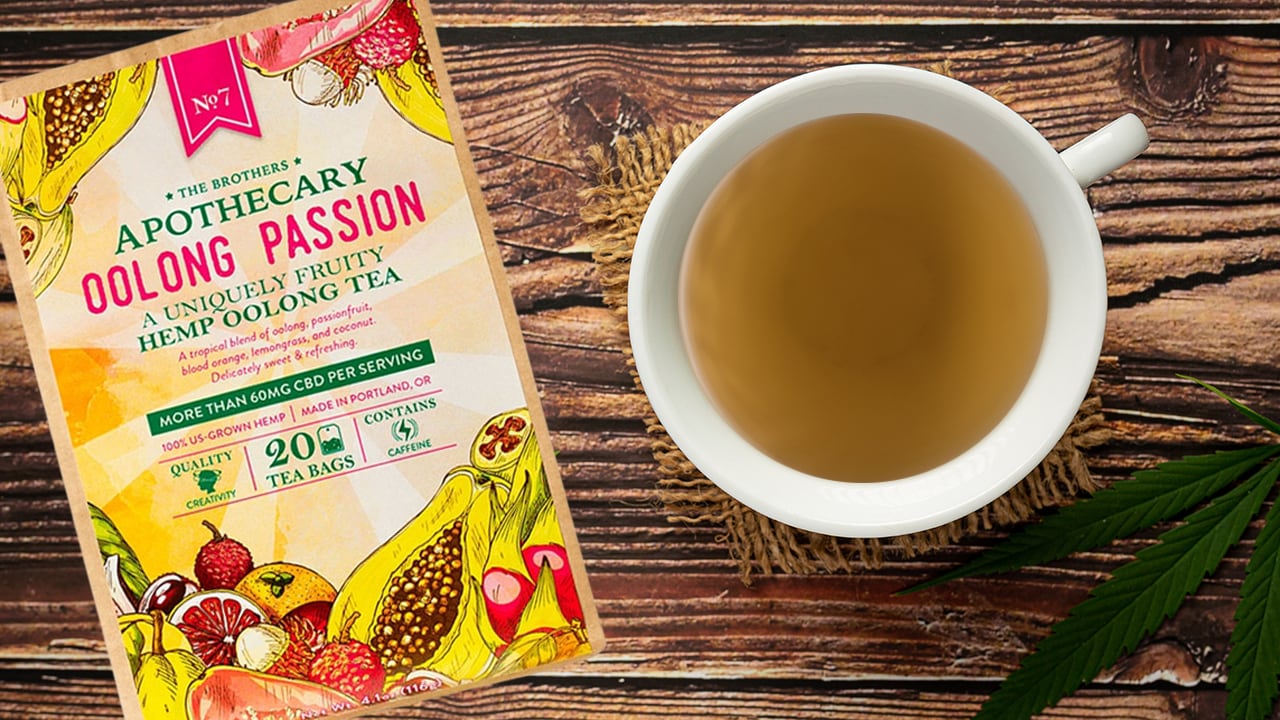
CBD is a naturally occurring compound extracted from the hemp plant. One of many cannabinoids, numerous clinical studies have found that CBD has the potential to deliver many benefits. As a result, CBD is increasingly being used in various foods and drinks, like tea. Often made with herbs, combining CBD extract or CBD oil in tea creates a beverage that is enjoyable to drink and may deliver synergistic effects as the compounds work together for more effective results.
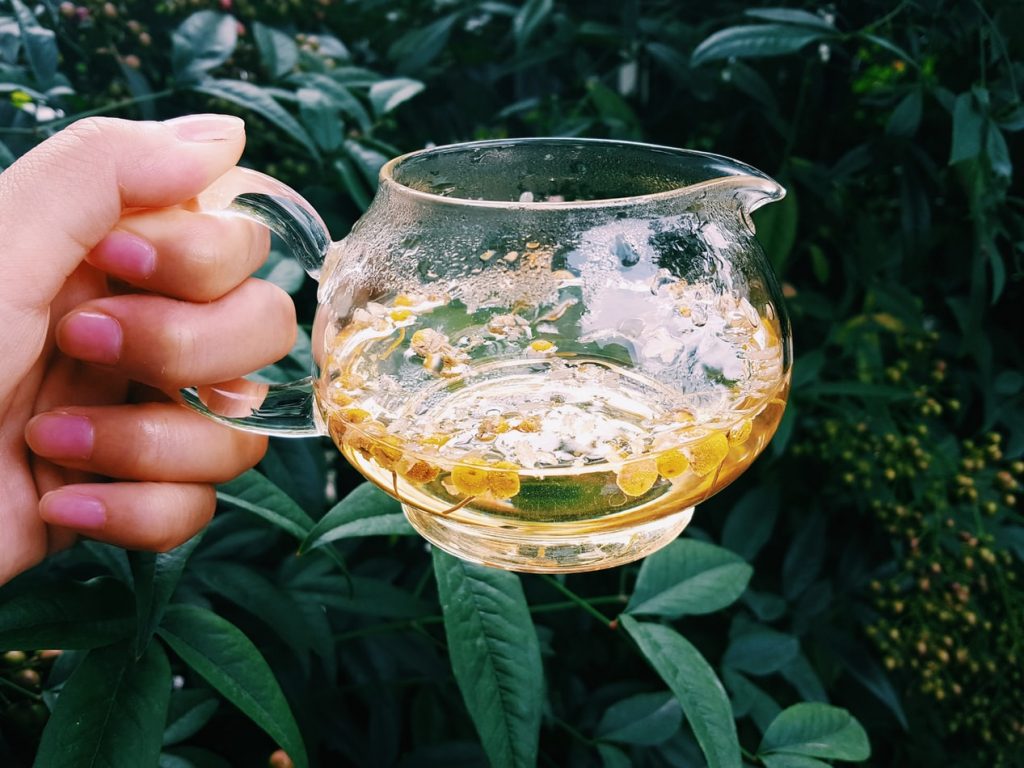
TL;DR (Too Long; Didn’t Read):
CBD tea is black, green, or herbal tea with infused CBD. Tea and CBD have some common qualities, like being antioxidant-rich. This means CBD tea delivers synergistic effects. CBD tea is available in various flavors, and some are formulated to address specific needs, like better sleep quality or more focus. You can buy CBD tea bags or make your own CBD tea by adding CBD oil or isolate CBD to hot tea.
Table of Contents
What is CBD Tea?
As the name suggests, CBD infused tea is a beverage made with tea to which various concentrations of CBD are added. CBD tea is made by steeping tea leaves or tea bags in hot water. The CBD tea bags contain dried tea leaves infused with a hemp extract or oil and may contain other botanicals. You can also make your own CBD tea by adding oil or isolate crystals to brewed black, green or herbal teas.
What Does CBD Tea Do?
Making CBD health claims is not allowed by the Federal Drug Administration (FDA) because the agency believes more research is needed. However, a growing number of documented research studies to date have found cannabidiol (CBD) may have numerous effects, which include analgesic, neuroprotective and antioxidant effects. CBD has strong antioxidant properties, so it helps protect cells from free radical damage.
Full spectrum and broad spectrum CBD oils also contain other natural hemp plant elements like terpenes. A University of Arizona Health Sciences study found that terpenes in the cannabis plant may support reduced feelings of discomfort, but when terpenes are combined with cannabinoids, the effects are amplified. The full spectrum and broad spectrum CBD extracts also contain flavonoids. They have been shown to deliver many benefits like antioxidants suppressing free radical formation, cardiovascular protection and more.
Tea is also known to have properties that promote wellness. Black and green teas have polyphenols like flavonoids that may promote cardiovascular health.
CBD and tea have many common nutrients, including polyphenols, terpenes, antioxidants, minerals, vitamins and more. The synergy of CBD-infused herbal teas can also provide specific benefits, depending on the herb. For example, chamomile tea may provide a calming effect and support better sleep quality.
Pros and Cons of CBD Tea
Like any food or drink item, there are pros and cons.
CBD Tea Pros
- Blending CBD and tea may offer the entourage effect
- CBD and tea each offer potential benefits like antioxidant power and feelings of relaxation
- Herbal teas infused with CBD may offer additional benefits like promoting better sleep, increased relaxation or more antioxidants
- CBD teas are available in a variety of flavors
- CBD teas are available in blends designed to address specific needs, i.e., more focus or more energy
- CBD teas are made with different CBD spectrums
- There is a choice of types of teas used, including black, green and herbal teas
CBD Tea Cons
- CBD remains unregulated
- There is limited specific research on CBD teas
- Full spectrum CBD teas do contain a small amount of THC that can potentially show up in drug test results
- CBD laws are confusing and vary by state, so consumers need to make sure they follow the laws on purchasing CBD, especially full spectrum products, since they contain THC
- Blending CBD tincture in a hot cup of tea works best by adding a fat-soluble ingredient like milk because oil and water do not mix
Types of CBD Tea
One of the nice features of CBD tea is that you have a choice of flavors and tea blends designed to deliver specific benefits. The following are examples of the types of CBD teas.
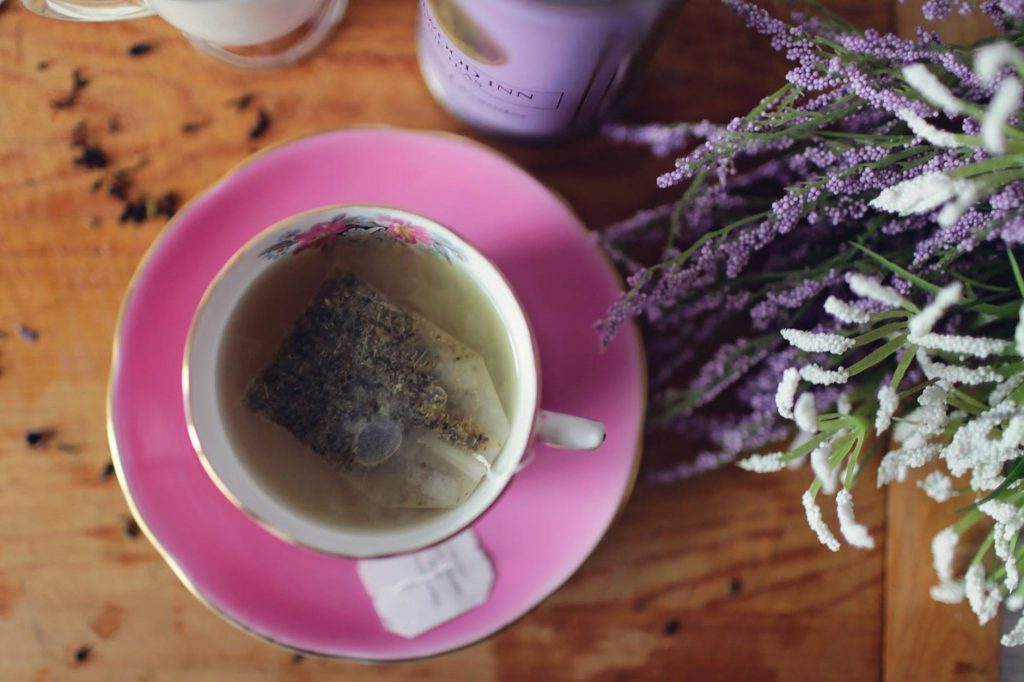
CBD matcha tea
Green tea has been used for thousands of years as a therapeutic herb. Matcha is made of specially grown green tea leaves ground into a fine powder. It is rich in antioxidants.
CBD chamomile tea
Chamomile is an herb researchers have found can act as a mild sedative. The natural remedy can promote relaxation and better sleep and has been found to settle upset stomachs.
CBD mint tea
Peppermint and spearmint are two types of mint plants. Mint leaves have essential oils like limonene and menthol. They both are naturally sweet and have been linked to benefits like improved digestion and increased energy. Many people enjoy peppermint simply because it has a refreshing flavor.
CBD sleep tea
CBD sleep tea is made with tea infused with various caffeine-free herbs known to produce a calming effect. They include chamomile, lemongrass, orange peel and more.
CBD tea for focus
CBD teas for focus are infused with herbs that support mental energy, like Tulsi, yerba mate and spearmint. CBD green tea is one of the most popular tea types because of its many therapeutic benefits.
Some people enjoy drinking tea because the act of drinking it is calming in and of itself. They choose their favorite flavor, such as berry, coconut, hibiscus, peppermint or rose, to enhance their enjoyment.
FAQs
1. How Do You Make CBD Tea?
First, buy CBD oil or isolate crystals in the desired spectrum and potency. Make the tea by pouring hot water over tea leaves or steeping tea bags in hot water. Add some butter or milk because CBD is fat-soluble. This gives CBD oil something to attach to for better absorption. Also, oil and water do not mix, so butter or milk helps mix oil and tea. Add the desired number of CBD drops or crystals to the tea and enjoy.
By buying CBD tea bags, you simplify the process. Steep the bag with tea leaves infused with CBD in hot water and sip at leisure. You also know precisely how much CBD is in each serving.
2. How Fast Does CBD Tea Work?
The Food and Drug Administration prohibits companies from making medical claims about CBD products. Customer reviews clearly show that CBD tea works for them. However, drinking CBD tea is similar to eating it because CBD must go through the digestive system after swallowing the tea. This means it can take 30-60 minutes for CBD tea to work. The time it takes depends on factors like body weight and metabolic rate. CBD tea will work faster if you drink it on an empty stomach or 2-3 hours after eating.
Header text
3. How Often Should You Drink CBD Tea?
It is a matter of personal preference. You may want to drink a cup in the morning and another in the evening. However, remember that CBD tea is not ordinary, and each person responds differently to CBD. A single tea bag may have 30-50 mg of CBD. The recommendation is to start with one cup per day for a week and assess the effects before drinking cups of tea more frequently.
If you buy CBD oil to make your tea, start with 1-2 drops of CBD added to the tea. After you determine the effects, you can adjust the CBD oil dosage.
4. How Does CBD-Infused Tea Taste?
Tea is made only with tea leaves, and CBD has an earthy flavor. CBD infused with herbs and natural flavorings will mask the earthy flavor and taste like the additional ingredients. Many flavors are available today, including berry, spearmint, hibiscus, etc. Some herbs, like rooibos, taste nutty and sweet with a hint of vanilla and caramel.
5. Will CBD Tea Make You High?
CBD is not a psychoactive compound, so it will not make you high.
Enjoy CBD Tea
When you read the CBD customer reviews of CBD tea, you find comments about how the act of sipping tea is relaxing and how CBD enhances the experience. Drinking CBD tea is a great way to add CBD to your dietary regimen. You can enjoy a cup in the morning to increase focus and enjoy a cup in the evening to unwind. Buy different types of CBD teas, and you will be ready to enjoy the combined benefits of CBD, tea and a variety of herbs.
Sources
- https://www.ncbi.nlm.nih.gov/pmc/articles/PMC10745805/
- https://healthsciences.arizona.edu/news/what-are-therapeutic-benefits-terpenes
- https://www.ncbi.nlm.nih.gov/pmc/articles/PMC7697716/
- https://scholarspace.manoa.hawaii.edu/server/api/core/bitstreams/2557d08b-6556-4f92-a0f5-f32018b7f61f/content
- https://www.nccih.nih.gov/health/chamomile
Share this post


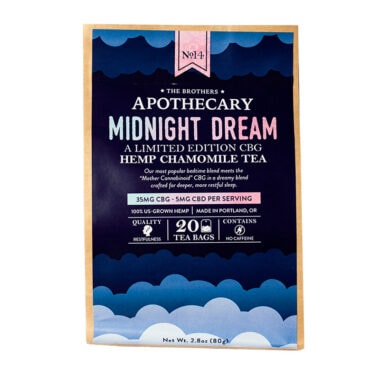
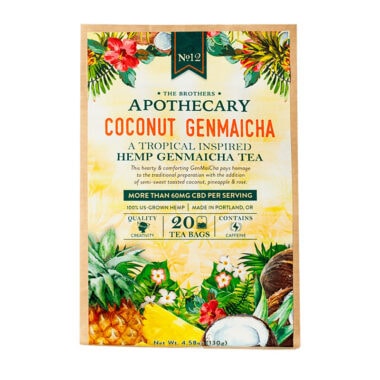
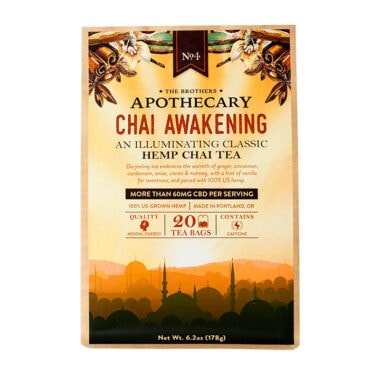
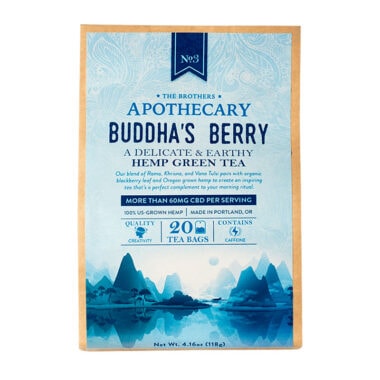
0